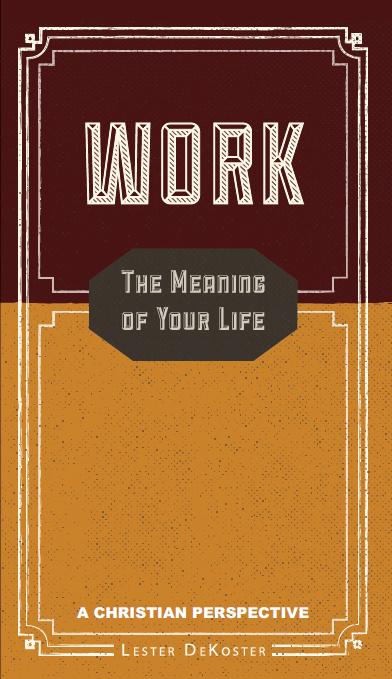
Christian’s Library Press has now re-issued the book, complete with new cover art and a hearty new afterword by Greg Forster.
In the afterword, Forster revisits the book in light of the broader faith and work movement, noting DeKoster’s keen awareness of the struggles and hardships we often experience at work, and the hope of Christ in the midst of such struggles.
Although the book applies to every occupation and vocation — from the Wall Street executive to the independent artist to the stay-at-home mother — one of DeKoster’s primary audiences in his own life was blue-collar workers, who he routinely taught in night classes at Calvin College. “His message of hope to them is an outstanding model for our movement today,” Forster writes.
Indeed, DeKoster realized that without a proper understanding of God’s ultimate purposes, we will find ourselves trapped in a “wilderness of work,” lost and without meaning. But when we understand God’s grand design for all things, everything changes.
We must, as DeKoster argues, bring hope to our work, as Forster explains:
Those who don’t find transcendent meaning in their work live as though their existence is mostly meaningless. Their character and life choices are shaped accordingly. Even if they are Christians, if they don’t connect their faith to their work, they will be what Doug Spada and Dave Scott call “Monday Morning Atheists,” living the bulk of their lives as though they are without God and without hope in the world. Their faith, while real, remains confined within the bounds of what Mark Greene calls “leisure-time Christianity.”
DeKoster writes that for people who don’t find meaning in work, whether Christian or not, human life is essentially “a wilderness of work.” Each day is a desert of meaningless toil that we have to trudge through, day after day. Our burning thirst for significance is quenched only occasionally—and briefly—by the “oases of meaning furnished by our families, the church, politics, community affairs, plus hobbies and spectator sports thrown in to give zest to leisure” (xiii).
The remedy to this bleak existence, DeKoster argues, comes when “a right view of work becomes the key to a satisfying life” (xv). If we live out a God-centered approach to work, we will be grounding the bulk of our lives squarely in God. Our spiritual longings will be satisfied.
You can purchase the book here and add it to your Goodreads bookshelf here.
For a sample from the book, see this extended excerpt at the Oikonomia blog.